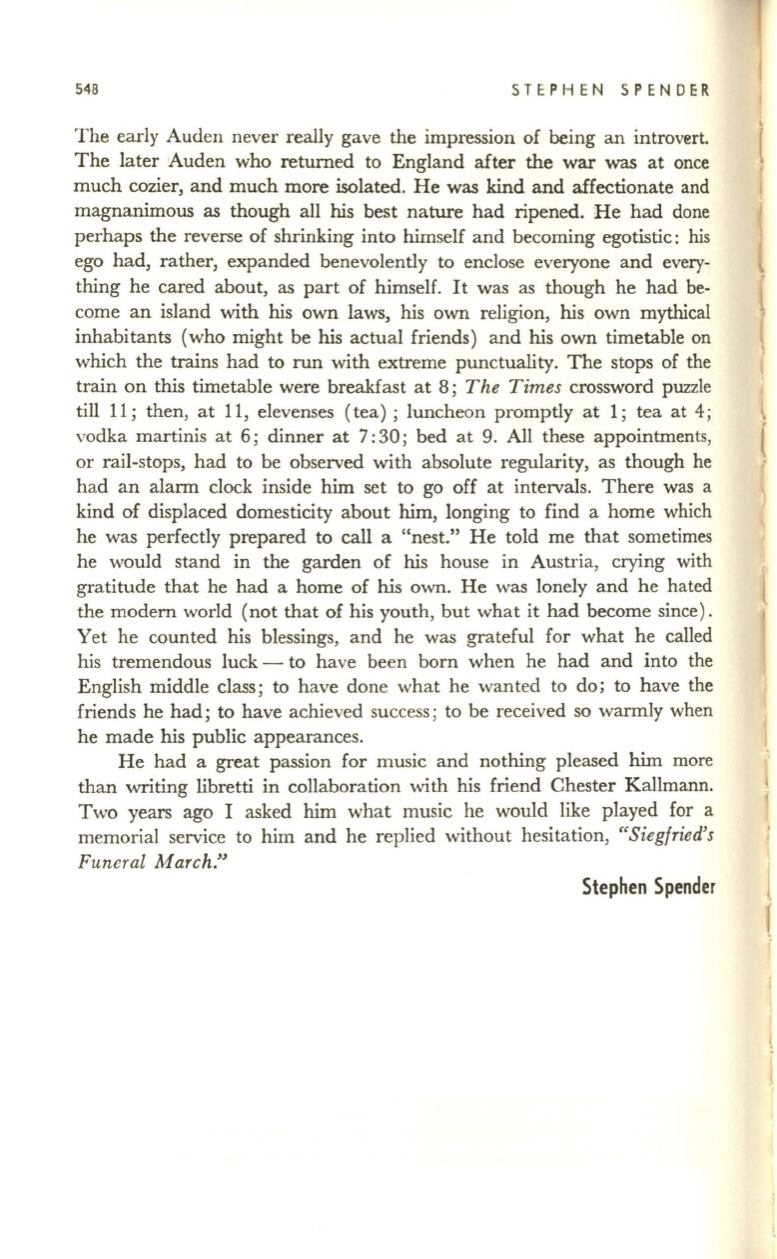
548
STEPHEN SPENDER
The early Auden never really gave the impression of being an
introv~rt.
The later Auden who returned to England after the war was at once
much cozier, and much more isolated. He was kind and affectionate and
magnanimous as though all his best nature had ripened. He had done
perhaps the reverse of shrinking into himself and becoming egotistic: his
ego had, rather, expanded benevolently to enclose everyone and every–
thing he cared about, as part of himself. It was as though he had be–
come an island with his own laws, his own religion, his own mythical
inhabitants (who might be
his
actual friends) and his own timetable on
which the trains had to run with extreme punctuality. The stops of the
train on this timetable were breakfast at 8;
The Times
crossword puzzle
till 11; then, at 11, elevenses (tea); luncheon promptly at 1; tea at 4;
vodka martinis at 6; dinner at 7: 30; bed at 9. All these appointments,
or rail-stops, had to be observed with absolute regularity, as though he
had an alarm clock inside him set to go off at intervals. There was a
kind of displaced domesticity about him, longing to find a home which
he was perfectly prepared to call a "nest." He told me that sometimes
he would stand in the garden of
his
house in Austria, crying with
gratitude that he had a home of his own. He was lonely and he hated
the modern world (not that of his youth, but what it had become since).
Yet he counted his blessings, and he was grateful for what he called
his tremendous luck - to have been born when he had and into the
English middle class; to have done what he wanted to do; to have the
friends he had; to have achieved success; to be received so warmly when
he made his public appearances.
He had a great passion for music and nothing pleased
him
more
than writing libretti in collaboration with his friend Chester Kallmann.
Two years ago I asked him what music he would like played for a
memorial service to him and he replied without hesitation,
"Siegfried's
Funeral March."
Stephen Spender


